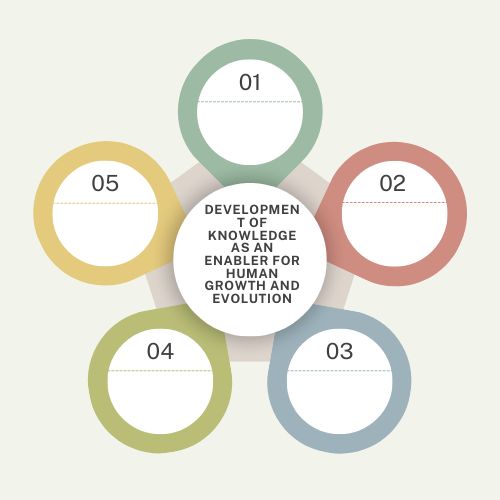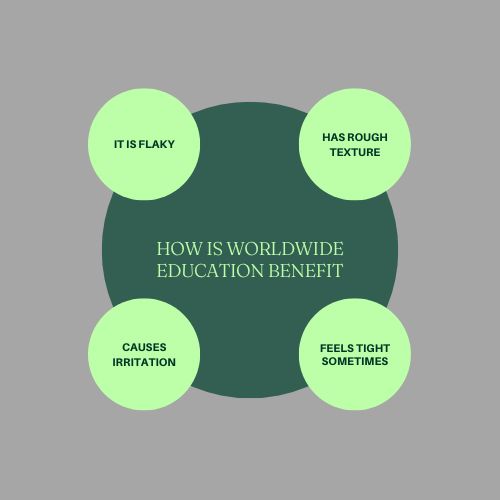The Bright Covenant of International Education
Education has been described as the bedrock of civilisation, an instrument that teaches and liberates. Even today, education participation in countries remains a potent instrument for societal and economic integration. Education in a global perspective performs a much larger function than individual self-development; rather, it involves building new societies and nations. This essay will elucidate the factors regarding education from a global perspective, helping economies, national integration, world peace, and creativity-promoting factors.
Economic Growth
For countries and societies at large, literate and skilled people are vital contributions towards economic growth. Education increases people’s employability by preparing them with knowledge and skills that make them more active members of society. “However, firm evidence exists for advances among world economies with higher literate and educated populations escalating GDP per capita, as is the case within Northern European countries where massive investment of their taxes is mostly focused on civil welfare.”
Investing in education has also shown that a country’s poverty levels may be decreased. The United Nations Educational, Scientific, and Cultural Organization (UNESCO) further states that the earning power of a person increases by 10% for every additional year spent in school. Providing education to individuals aids them in raising their social status and obtaining much better employment opportunities, ultimately eliminating poverty in families and most communities over time. Furthermore, educated individuals help create relationships with other countries that expand as companies seek out growth; in turn, the educated societies attract foreign investments.
Apart from that, education also equips countries to face the challenges that a globalised economy brings. In the contemporary world, where the economy largely relies on technology and its related sectors, the availability of quality education seeks to make individuals and countries competitive.
Widening the Gender Gap
Education on a large scale acts to eliminate gender imbalance. Education for girls in some regions became impossible due to culture, society, or economy. Nevertheless, interventions advocating for girls’ education, such as those by Malala Yousafzai and Plan International, demonstrate the value of education in changing the situation.
There are various positive effects on society owing to the education of girls. For instance, educated women are able to participate in any occupational activities and earn money for the family and the economy. Statistics have also indicated that educated women tend to marry when they are older and have fewer children while ensuring effective education for their offspring, thereby curbing poverty. It has been shown through various studies that focusing on the education of women could add trillions of dollars to GDP worldwide.
Women are also able to influence leadership positions and make decisions, which eliminates the vicious cycle of discrimination and stimulates equality. Countries that have invested in the education of women have seen lower child malnutrition and maternal mortality rates due to the improved education and economic status of women.
How Has The World Come, And How Will It Move Forward
It can easily be said that more educated people contribute to the peaceful coexistence of individuals with different backgrounds and nationalities. Education encourages individuals to be critical thinkers and promotes tolerance and appreciation for diverse cultures. Such education creates a feeling of global citizenship among individuals, reducing biases and conflict.
The Global Peace Index shows that high education levels correlate with low violence and political conflicts. Education provides individuals with the ability to examine the propaganda that extremist movements offer to them, making these movements less attractive. For instance, in conflict-ridden areas, educational development programmes provide a means to counter radicalism.
On the other hand, education offers a pathway to solving and understanding global issues such as climate change, poverty, and health emergencies. Empowering individuals through education enables them to think in ways that are essential for sustaining world peace.
Development of Knowledge as an Enabler for Human Growth and Evolution

Such individuals who prioritise education are able to find innovative solutions to problems. Education provides a basis for inventive and innovative thinking that gives birth to scientific and technological developments. Such education is an essential aspect of our lives. Such education is one that is of high quality, and is accessible, which explains why successful innovators as well as entrepreneurs are spread throughout the globe.
World countries which are also active in boosting the implementation of the STEM (Science, Technology, Engineering and Mathematics) subjects do record rapid growth in technological advancement. For instance, countries like South Korea and Japan, which are more focused in these areas of education, have become top countries in terms of technological advancement in the whole world.
Furthermore, schooling facilitates development in non-technical areas. The development of arts, humanities and social sciences areas are vital towards the development of culture and whole societies. With global village education, the solutions to problems will be different, which enhances the human experience.
Breaking the Cycle of Inequity
Education, as is seen in this case, acts as the great equaliser which eliminates poverty by providing generations with the means to break the poverty cycle that has embattled families. In most parts of the world, the children of the marginalised or poor communities do not access quality education and this only extends the inequality gaps. Universal education initiatives aim at closing these inequalities by ensuring that the children are given the same opportunities to perform in life.
For example, some programmes like the Education for All campaign by UNICEF have had a fruitful impact on enrolment in disadvantaged countries/regions. These programmes address issues of school charges, absence of schools, and even cultural discrimination that creates an inability to enrol and empowers the poorest people.
Education also helps in bridging the gaps which are within nations by creating economic mobility. It gives people the ability and means to break through the barriers of class and economically weak societies, resulting in more united and broad-based societies.
Solving Global Problems
Climate change, a health crisis, and an economic crisis are various challenges that the world has to deal with. While growing up, education helps individuals obtain the required means to cater to such challenges firsthand. For example, environmental education has made people conscious of their contributions to climate change and has encouraged them to pursue environmentally friendly alternatives.
Likewise, in times of global health emergencies such as the COVID-19 pandemic, education acted as a platform where people could access factual information, preventing lives from being lost through the spread of lies. Education enables societies to manage such challenges by making them scientifically literate.
On top of that, education also develops the upper class who seek change for the betterment of the society in which they live; they advocate for social justice, human rights, and environmental issues. These are the people who make a difference in the world by taking what the education system has taught them.
Developing Resilient and Adaptive Societies
With the current global shift in technology and other international changes, education acts as a medium through which societies can remain adaptive and strong. This enables operating in the ever-changing job market by continuously upskilling. Recently, this has been made possible by the rise of worldwide online education, which has universal access to information.
Additionally, education encourages resiliency through the development of problem-solving, communication, and collaboration skills. These skills are essential as they allow individuals to navigate the great unknowns in life and, in return, increase the adaptability and stability of society.
Conclusion
There are considerable effects of global education. Education encourages economic development, promotes equal opportunities, resolves conflicts, enhances creativity as well as addressing the global crisis. In the era we live in, the Covid pandemic has just aggravated the necessity of universal education to all; it is not just a stick of virtue but also a stick of dynamics. Moving further, we must keep on investing in education, systems, and people to ensure better prospects for the future of mankind.
advantages and disadvantages of education

Benefits of Education
Develops a student’s ability to engage in meaningful and informed discourse, formulate viable solutions, and reach conclusions.
Fosters a sense of competence and self-worth.
Equips individuals with skills and knowledge that enable them to succeed in life.
improves chances of getting a job and increases the income earned.
Alleviates levels of poverty and contributes to the economic development of a nation.
Equips individuals to have the ability and skills to compete in the employment market at a high level.
Helps to promote equity and inclusion in society by empowering people regardless of their gender.
- Promotes participation in societal issues as well as democracy.
- Helps in preventing crime through education which empowers people to do positive things in society.
- Contributes to the development of new sciences and better technologies.
- Contributes to the reduction of global tensions and hostilities.
- Prepares communities to respond to issues like global warming and pandemics.
- People with a higher level of education tend to make better decisions and lead a healthier lifestyle.
- Enhances the health status of mothers and children.
- Promotes the understanding and acceptance of mental health and well-being.
Costs and Drawbacks of Education
- Poor availability in remote and developing regions.
- Social inequalities exist because of the huge expenses involved with pursuing education beyond a basic level.
- Inequities in opportunity stemming from cultural and gender discrimination.
- Harsh academic rivalry may promote anxiety and psychological challenges.
- The focus on grades and assessment test results may stifle creativity and an ability to develop an integrated approach to a topic.
- The same curriculum and the same content of training across the country may not suit all learning preferences.
- Those individuals who rely on conventional methods may stifle creativity and critical thinking principles.
- The presence of oversaturation brings about underemployment in some sectors.
- The skills that are acquired may not be suitable for the job market.
- Local customs and languages may undergo degeneration owing to globalised education.
- The western education model, if given importance, may neglect other cultures.
- With the increase of digital education, there is an increased dependency on technological gadgets which increases the digital divide.
- A clear disadvantage that follows is the dependency on technology for learning which impedes students’ face-to-face interactions.
Education is critical for both the individual and society, however, it is important to understand the need to deal with its inequalities and structural problems that exist to achieve its advantages for all people. If their advantages are consolidated with appropriate changes, the system can be more equitable and efficient.

